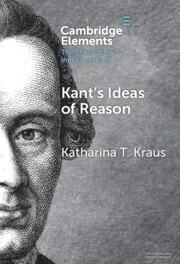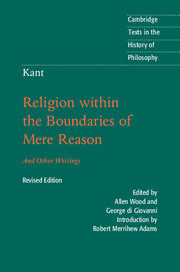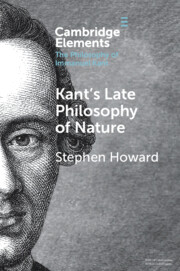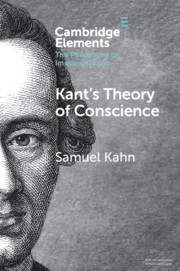Kant's Ideas of Reason
This Element introduces Kant's ideas of reason, focussing on the ideas of theoretical reason in the study of nature. It offers a novel interpretation that shows how such ideas as the soul, the world-whole, and God provide a regulative orientation for coping with human perspectival situatedness in the world. This perspectivalist interpretation reconciles two interpretive tendencies: a realist reading, according to which ideas refer to real things independent of the human mind, and a fictionalist reading, according to which ideas are heuristic fictions without reference to anything real. The perspectivalist interpretation recognizes two functions of ideas: first, ideas outline domains of possible objects, thus presenting the human mind with contexts of intelligibility in which the cognition of objects can be meaningful at all. Second, ideas project an ultimate reality as a focus imaginarius, which serves as a normative ideal for evaluating the success of human inquiries into nature.
Product details
March 2025Hardback
9781009507325
84 pages
229 × 152 mm
Not yet published - available from March 2025
Table of Contents
- Introduction
- 1. Ideas of theoretical reason
- 2. The two functions of reason in human cognition
- 3. Kant's visual metaphors: Standpoint, Horizon, and Focus Imaginarius
- 4. The perspectivalist interpretation: the horizon of human experience
- 5. The perspectivalist interpretation: ultimate reality as Focus Imaginarius
- Conclusion
- References.






